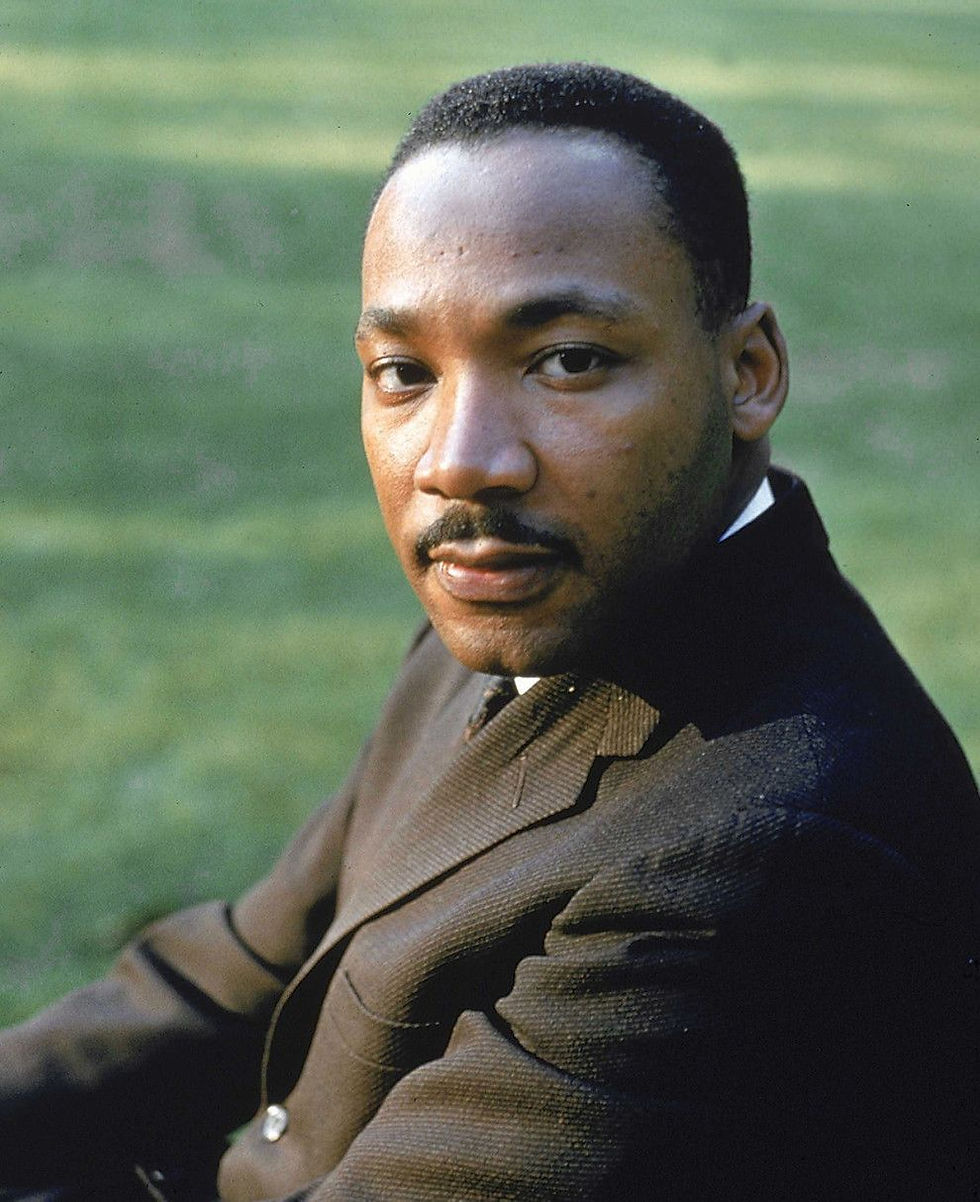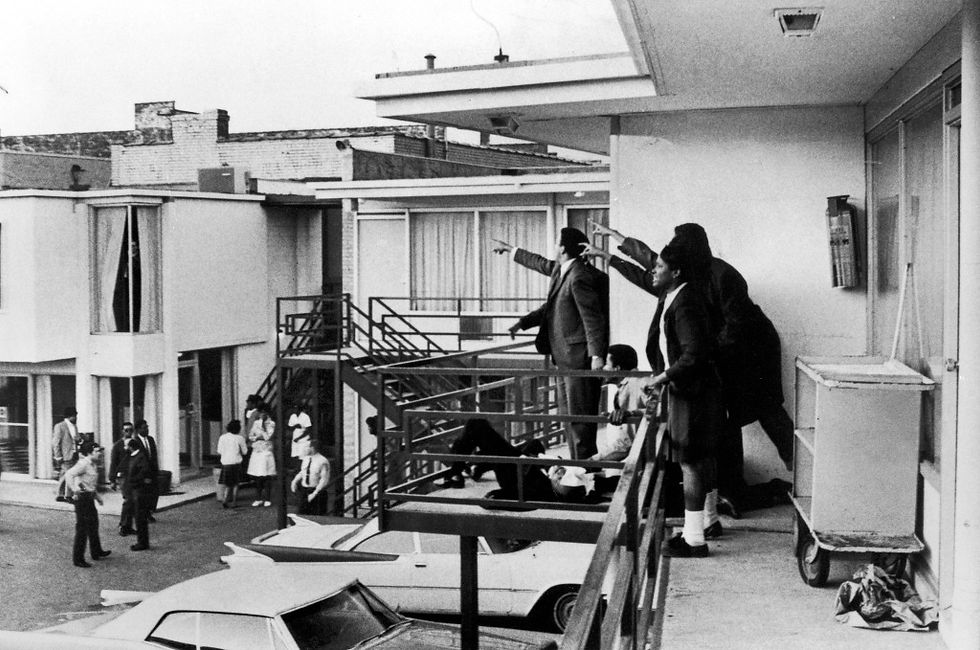Martin Luther King's Assassination: Then, Here and Thereafter
- Jun 18, 2018
- 4 min read

The Life and Legacy of a great man
Martin Luther King, Jr., (January 15, 1929-April 4, 1968) was born Michael Luther King, Jr., but later had his name changed to Martin. His grandfather began the family's long tenure as pastors of the Ebenezer Baptist Church in Atlanta, serving from 1914 to 1931; his father has served from then until the present, and from 1960 until his death Martin Luther acted as co-pastor.
Martin Luther attended segregated public schools in Georgia, graduating from high school at the age of fifteen; he received the B. A. degree in 1948 from Morehouse College, a distinguished Negro institution of Atlanta from which both his father and grandfather had graduated.
See also: The Traits of a Leader: Dr. Martin Luther King Jr.

At age 6, Martin Luther King Jr. was jarred when a parent of a white friend said the boys could no longer play together because he was black. Another time, King's father, a minister, was driving a car when a white policeman pulled him over for no obvious reason. "Listen, boy," he began, only to be cut off when the Rev. King pointed to his son in the passenger seat. "That is a boy. I am a man."
King felt the pangs of racial bigotry growing up in Atlanta--and they stoked a fire within him.
Martin Luther King's works
In 1955, he was recruited to serve as spokesman for the Montgomery Bus Boycott, which was a campaign by the African-American population of Montgomery, Alabama to force integration of the city’s bus lines. After 381 days of nearly universal participation by citizens of the black community, many of whom had to walk miles to work each day as a result, the U.S. Supreme Court ruled that racial segregation in transportation was unconstitutional.
In 1963, he led a coalition of numerous civil rights groups in a nonviolent campaign aimed at Birmingham, Alabama, which at the time was described as the “most segregated city in America.”
Later in 1963, Dr. King was one of the driving forces behind the March for Jobs and Freedom, more commonly known as the “March on Washington,” which drew over a quarter-million people to the national mall. It was at this march that Dr. King delivered his famous “I Have a Dream” speech, which cemented his status as a social change leader and helped inspire the nation to act on civil rights. Dr. King was later named Time magazine’s “Man of the Year"
For more info on his works see: "About Dr. King.” Last Days & Legacy | The Martin Luther King Jr. Center for Nonviolent Social Change
His tragic assassination and its effects

Martin Luther King Jr. was shot at the Lorraine Motel in Memphis, Tennessee, on April 4, 1968. He was rushed to St. Joseph's Hospital, and was pronounced dead at 7:05 p.m.CST. James Earl Ray, a fugitive from the Missouri State Penitentiary was arrested on June 8, 1968, in London at Heathrow Airport. On March 10, 1969, he pleaded guilty and was sentenced to 99 years in the Tennessee State Penitentiary. He later made many attempts to withdraw his guilty plea and be tried by a jury, but was unsuccessful; he died in prison on April 23, 1998, at the age of 70. His death led to riots throughout the country.
See more of its aftereffect on "Books - What happened after MLK died?"
Video of reaction on: https://ca.pbslearningmedia.org/resource/bln12.soc.civil.mlkresponse/reaction-to-the-assassination-of-martin-luther-king-jr-1968/
50 years later! Still honored?
"Historians believe he would marvel at the expansion of rights for women and the L.G.B.T.Q. community, the growth of the black middle class and the number of black elected leaders, including America’s first black president."
— RACHEL L. SWARNS
His birthday came about to be "Martin Luther King's day", an holiday widely held by the whole nation.
The American Federation of State, County, and Municipal Employees (AFSCME), which will be meeting in Memphis on the 50th anniversary of King’s death, launched its “I Am 2018” campaign to fight for racial and economic justice and combat so-called right-to-work laws. The Rev. William Barber, the Rev. Liz Theoharis, and others also met in Memphis to begin their new Poor People’s Campaign to end poverty, which is modeled on King’s original crusade.
Unions look back on King as a labor hero as well as a prophetic advocate for the disinherited and the working poor.
Fifty years after his death, King’s message of agape love, or love for all, lives on.

Works cited:
Wallace, L. (2016, October 23). The Traits of a Leader: Dr. Martin Luther King Jr. Retrieved June 18, 2018, from https://sites.psu.edu/leadership/2016/10/23/the-traits-of-a-leader-dr-martin-luther-king-jr/
Assassination of Martin Luther King Jr. (2018, June 18). Retrieved June 18, 2018, from https://en.wikipedia.org/wiki/Assassination_of_Martin_Luther_King_Jr.
About Dr. King. (n.d.). Retrieved June 18, 2018, from www.thekingcenter.org/about-dr-king.
W. (n.d.). Reaction to the Assassination of Martin Luther King, Jr., 1968. Retrieved June 18, 2018, from https://ca.pbslearningmedia.org/resource/bln12.soc.civil.mlkresponse/reaction-to-the-assassination-of-martin-luther-king-jr-1968/
Honey, M. K. (2018, April 03). Martin Luther King Jr.: 50 Years Later. Retrieved June 18, 2018, from https://www.thenation.com/article/martin-luther-king-jr-50-years-later/






Comments